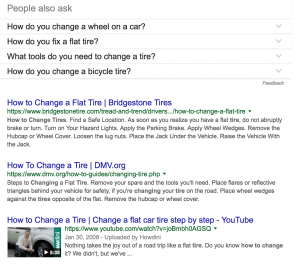— November 16, 2018
Does your workplace suck? Do rule nazis and petty tyrants make you suffer? Do you spend so much time trying to follow company rules and regulations you never have time to do your real work? If so, your organization might be suffering from destructive organizational friction.
Organizational friction is a dual-edge sword. Cut one way, friction gives you traction to get work done. Cut the other, friction stops you from getting anything done.
Robert Sutton, Stanford business professor and bestselling author of The No Asshole Rule, has been studying destructive organizational friction in the workplace for the past two years. Instead of waiting to publish the results of his research, Sutton has been sharing the causes and effects of organizational friction in real time. As part of his Friction Project, he has been interviewing experts, creating podcasts, and publishing articles.
After two years, here are Sutton’s top findings for why your work sucks and things you can do to make it suck less.
Why Your Workplace Sucks
As organizations get more complex, organizational friction increases. Each time a company adds on more layers, more people, more systems, and more locations, they add on another source of friction. The result is unintentional overload and insecurity and fear for employees.
Unintentional overload
Organizations unintentionally overload people in two ways: with the best of intentions and as a reward. Sutton explains organizations develop rules and regulations with the noblest of intentions. For example, managers may add more complexity to your work evaluations. Adding more categories might make your evaluations more thorough and fair, but it is still extra work.
Organizations also tend to reward increasing complexity. Promotions and bonuses tend to reinforce additive processes. Adding in new procedures and managing a larger staff makes you look more useful and results in a higher paycheck. More companies need to reward employees for doing more with less and reducing procedures.
Insecurity and fear
Large organizations are breeding grounds for inflated fears and insecurities. Insecurities can lead to a proliferation of rule nazis and petty tyrants. Fear can lead to silence.
When people feel insecure, organizations end up with rule clingers and petty tyrants. Rule clingers are the employees who cling to rules as if their life depended on them. They make sure everyone else follows the rules, even when those rules don’t make sense or are counterproductive. Petty tyrants are the people with power over a narrow domain. They usually “simmer and sulk” about their lack of respect. The result? They use their limited power to make all of us suffer. Both types place unnecessary barriers to productivity.
Fear, on the other hand, leads to silence in an organization. When people are afraid to talk to each other or leadership, they don’t mention problems that could affect productivity. And people who function under fear, who feel the need to look out for their own skin, stop helping each other.
How to Make Your Workplace Suck Less
After two years of research and consultation, Sutton has found that companies with less friction tend to have one of three things in common. They have etiquettes and norms, slow down their pace, and make the work environment predictable.
Encourage etiquettes and norms
Companies that experience low friction have established work etiquettes. In these companies, people are held responsible for not making life harder for one another. For example, companies like Netflix reward people for making processes easier. Other companies have norms that encourage employees to behave in a positive way. For example, many companies in Silicon Valley follow Kim Scott’s principle of radical candor. With radical candor as the norm, leaders take the time to get to know their employees so they can deliver more useful feedback to increase productivity.
Slow down
Facebook’s mantra used to be “move fast and break things.” However, when companies like Facebook move too fast they develop what Sutton terms “Friction Debt.” Friction Debt is the accumulation of problems that result from moving too fast, like when Facebook had weak policies to protect privacy and lax oversight to ensure accurate news. This is probably why Uber, another company that grew too fast, developed the mantra: “move slow and build things.” So when things are going too fast for your company, slow down, take stock, do research, evaluate the environment, and then move forward.
Be predictable
When work is predictable people feel safe and secure. When your tasks are predictable, there is less friction; you can get more work done. It’s when things are unpredictable, like when you don’t know if your job or company will be there tomorrow, that people become afraid. Or when procedures are unclear or always changing, friction stops people from being productive. So companies who can introduce more predictability can reduce friction and increase their productivity.
Business & Finance Articles on Business 2 Community
(43)
Report Post




